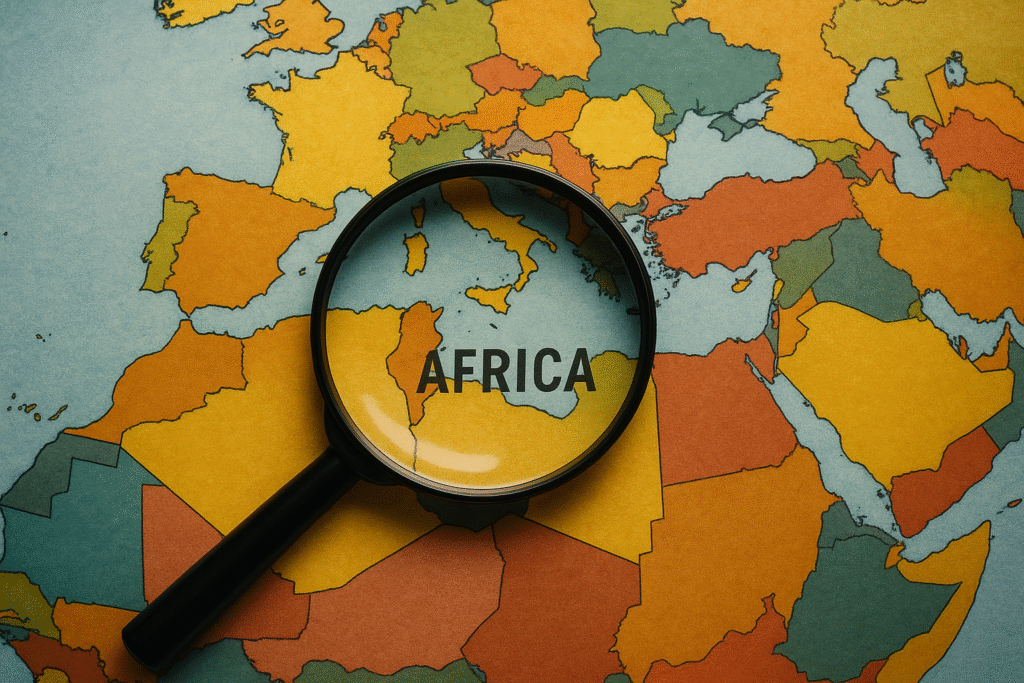
African countries find themselves navigating a complex landscape amid the ongoing economic rivalry between the United States and China. While not direct participants in this geopolitical contest, the continent is significantly impacted by the strategic maneuvers of these global powers.
Strategic Alignments and Historical Ties
Many African nations exhibit a closer political alignment with China than with the U.S., a trend evident in United Nations General Assembly voting patterns. This alignment is rooted in historical contexts, including shared experiences of colonialism and a collective inclination towards South-South cooperation. China’s approach, often characterized by fewer political conditions attached to aid and investments, contrasts with the West’s emphasis on governance and human rights, making Chinese partnerships more appealing to some African governments.
The U.S.-China trade tensions have opened avenues for African countries to enhance their trade relations with China. For instance, African exports to China grew by 6.9% in 2024, narrowing the trade deficit. Commodities such as crude oil, natural gas, and agricultural products like avocados and cashews have seen increased demand. Additionally, the African Continental Free Trade Area (AfCFTA) offers a platform to bolster intra-African trade, reducing reliance on external markets.
Resource Competition and Geopolitical Tensions
The competition for Africa’s critical minerals, essential for modern technologies, has intensified. In the Democratic Republic of Congo (DRC), both the U.S. and China are vying for access to resources like cobalt and lithium. The U.S. has engaged in strategic deals to secure these minerals, while China’s established presence in the DRC’s mining sector poses challenges to American interests.
African leaders advocate for a non-aligned approach, seeking to engage with both powers without being drawn into their rivalry. Former Kenyan President Uhuru Kenyatta emphasized the importance of Africa’s autonomy in choosing its partners, warning against a return to Cold War-era divisions. He highlighted the need for long-term policies that promote economic integration within Africa, rather than being swayed by external powers’ competing interests.
In 2025, the U.S.-China trade conflict has intensified, with both nations imposing significant tariffs on each other’s goods.
U.S. Tariff Measures:
- President Donald Trump implemented a 10% tariff on all Chinese imports, affecting approximately $1.2 trillion in trade volume.
- Plans were announced to raise tariffs on Chinese imports even further to 125%.
- The $800 de minimis rule, which previously allowed low-value imports to enter the U.S. duty-free, was eliminated, impacting e-commerce platforms like Temu, Shein, and AliExpress.
These actions aim to address concerns over trade imbalances and issues related to fentanyl production.
China’s Retaliatory Actions:
- China imposed additional tariffs of 10-15% on U.S. imports, including agricultural products and energy goods.
- Twenty-five American firms were placed under export and investment restrictions.
- Export controls were implemented on critical minerals like tungsten and tellurium, essential for various industries.
These measures are designed to exert pressure on key U.S. sectors while minimizing domestic economic disruption.
Global Implications:
- The escalating tariffs have far-reaching consequences, including challenges for companies like Boeing, which faces difficulties as Chinese airlines return aircraft orders.
- U.S. farmers and energy exporters are affected by China’s tariffs on products like soybeans, pork, and crude oil.
- The trade conflict prompts countries like China to strengthen economic ties with other partners, such as the European Union, to mitigate reliance on U.S. markets.
Amid the U.S.-China economic competition, African countries are striving to assert their agency, leveraging opportunities to advance their development agendas while carefully managing the complexities of global power dynamics.